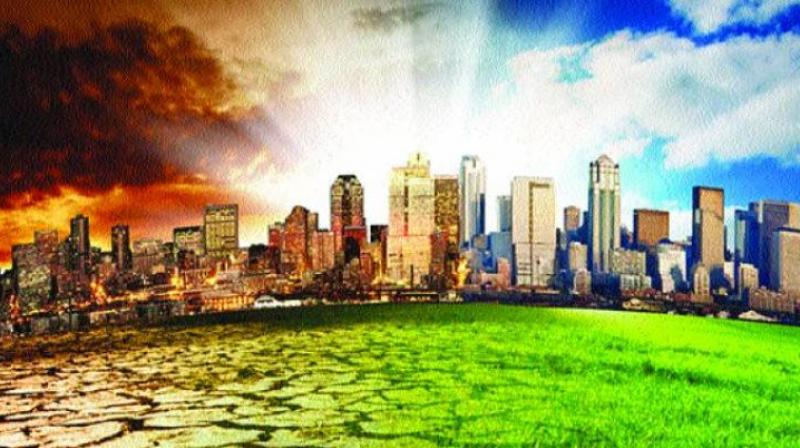So, let's talk green: Lots to do before we can rest

Often we sail down the road towards development, not fully aware of what lies ahead. That trend has shifted over the last decade, thanks to meaningful and in-depth reports being published by experts. One such report is the Global Risks Report, which has been published every year since 2005.
The Swiss non-profit and influential advisory group, World Economic Forum has released its 12th annual Global Risks Report called The Global Risks Report, 2017. The report concludes that economic inequality, societal polarization, and intensifying environmental dangers are the top three trends that will shape global developments over the next ten years - not least of all this year. The report is the result of assessment from some 750 experts assessing 30 global risks and 12 underlying trends that could amplify these risks.
But what caught my attention is the reference to climate change and environmental risks. One of the complicated charts within the report illustrates a cluster of interconnected environment-related risks - including extreme weather events, climate change and water crises. While this has consistently featured among the top- ranked global risks for the past seven editions, the environment-related risks again stand out in this year's global risk landscape, but with one difference - every risk in the category lying in?the higher-impact, higher-likelihood quadrant.
"Urgent action is needed among leaders to identify ways to overcome political or ideological differences and work together to solve critical challenges," said Margareta Drzeniek-Hanouz, Head of Global Competitiveness and Risks, World Economic Forum. "The momentum of 2016 towards addressing climate change shows this is possible, and offers hope that collective action at the international level aimed at resetting other risks could also be achieved."
While detailing the risks, the report also acknowledges that a lot of progress was made in 2016 in addressing climate and other environmental risks. It cites the example of the Paris agreement, the International Civil Aviation Organisation agreement on a "market- based measure" that will ensure no net growth in aviation emissions after 2020, the Montreal Protocol on ozone- depleting substances agreed an important amendment that could help avoid an additional 0.5°C of warming by 2050 through reducing the use of hydro fluorocarbons, which have an extremely high global warming potential.
The year 2016 also saw positive empirical evidence that the transition to a low-carbon economy is underway. Bloomberg New Energy Finance reported that global investment in renewable energy capacity in 2015 was US$266 billion, the International Energy Agency (IEA) reported that the total generation capacity of renewable energy now exceeds coal fired power plants for the for first time, and for the past two years greenhouse gas emissions have been de-coupled from economic growth.
Notwithstanding all this positive news, the report sets a high bar and says that the pace of change is not yet fast enough. Global greenhouse gas emissions are growing, currently by about 52 billion tonnes?of Co2 equivalent per year and the year 2016 has been declared the warmest on record. The Emissions Gap Report 2016 from the United Nations Environment Programme shows that even if countries deliver on the commitments they made in Paris, the world will still warm by 3.0 to 3.2°C.
The risks are clear, the path ahead is clear. We need to keep global warming to within 2°C and limit the risk of dangerous climate change. For this the world will need to reduce emissions by 40% to 70% by 2050 and eliminate them altogether by 2100.
To achieve this and help the world, do your bit to move towards a low carbon economy. Encourage your companies to do the same. Buy an electric car, use public transport, switch to led lights…lots to do and miles to go before we all can rest. Start now!

